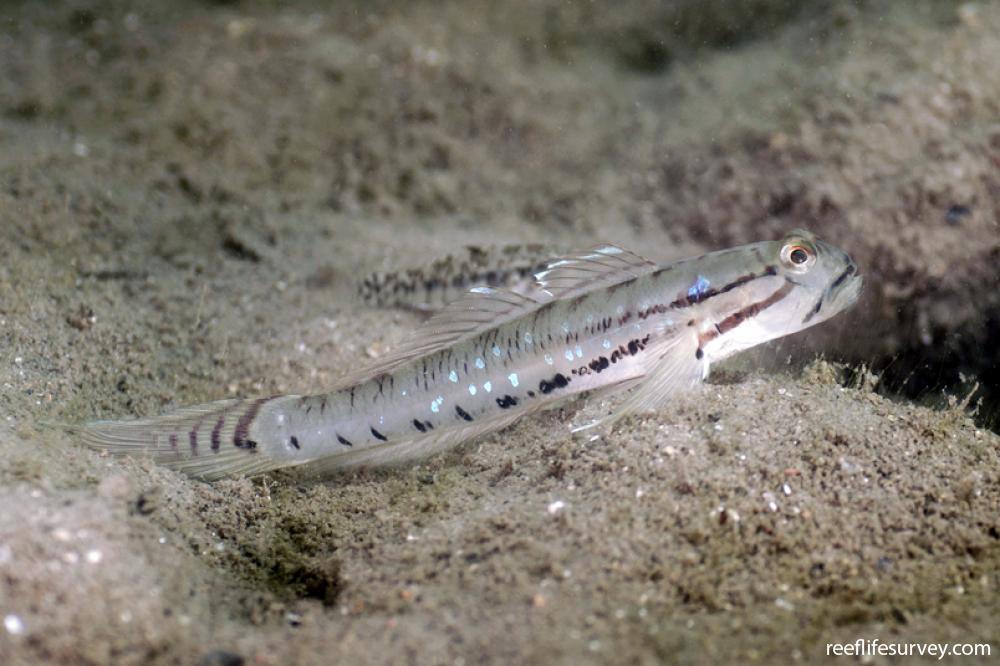Arenigobius bifrenatus
Bridled gobySimilar Species
Same Genus
Distribution
Localised, Temperate Australasia
Description
Large colourful goby with steep rounded head, large lips, light grey / khaki body, which with fins folded, appears to taper. Two reddish black stripes commence at the eye, extend backward across the head, and break into spots along the sides. Irridescent spots along the body above the mid-line. Found in estuaries and brackish lagoons; occasionally in sheltered bays, e.g. under jetties. Burrows in soft sand or silt near seagrass, reef fragments or other detritus. Ideal introduction to the wonderful world of gobies, as it is large, handsome, bold, and poses beautifully for photos!
A closely related species with an identical shape, the halfbridled goby Arenigobius frenatus, has a darker body with indistinct bars across the sides, and large black spots on the top of the head. The halfbridled goby is found from Western Port to Queensland. They feed partly on plant material.
Information
Max Size: 18 cm
Sea Temperature Range: 10.8-21.4°C
Depth: N/A
Habitat Generalization Index: N/A
Also referred to as the SGI (Species Generalisation Index), this describes the habitat niche breadth of the species. Species with values less than 15 are found in a relatively narrow range of reef habitat types (specialists), while those over 25 may be found on most hard substrates within their range (generalists). Learn more here.
Conservation and Rarity
IUCN Status: Not Evaluated
Occurrence: Rare (1.0% of sites)
Occurrence describes how often the species is found on surveys within its distribution. It is calculated as the % of reef sites surveyed by RLS divers across all the ecoregions in which the species has been observed
Abundance: Few (4 per transect)
Abundance is calculated as the average number of individuals recorded per RLS transect, where present.
Edit by: Andrew Green








